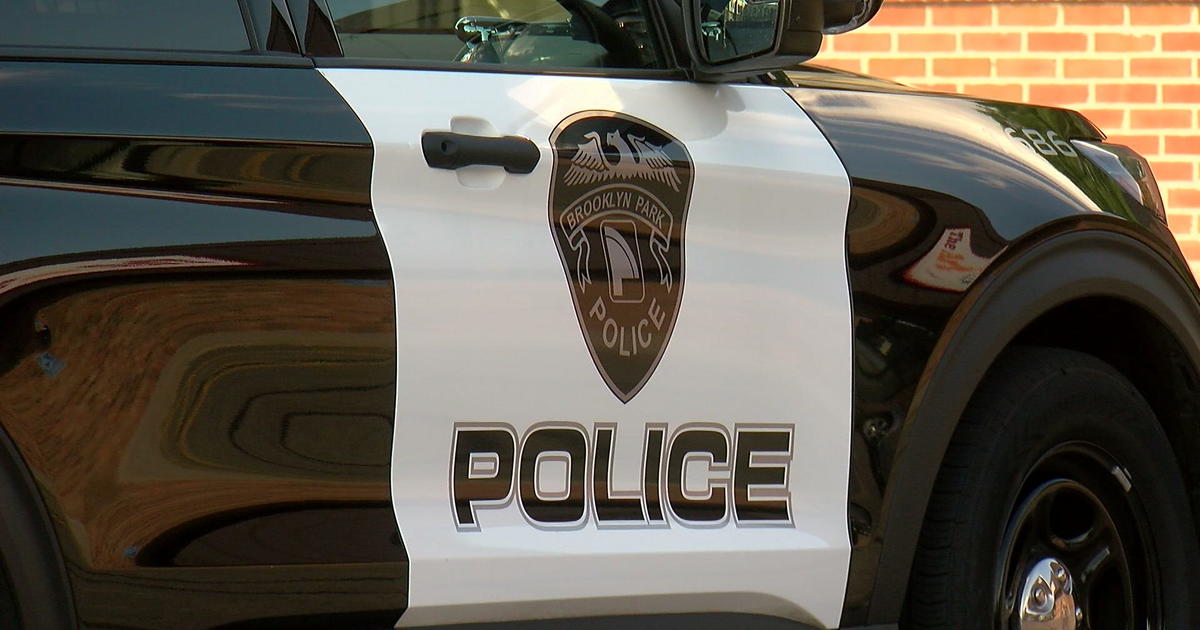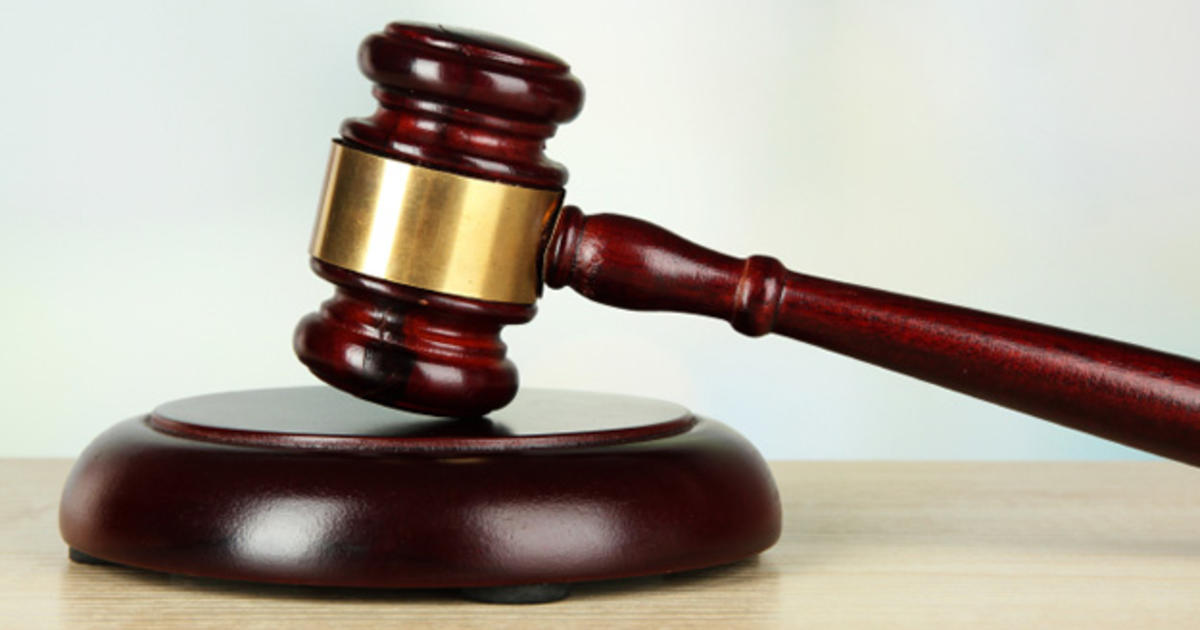Timeline: Daunte Wright's Death, Subsequent Unrest Leading To The Kim Potter Trial
BROOKLYN CENTER, Minnesota (WCCO) -- Closing arguments were delivered Monday morning in the trial of former Brooklyn Center police officer Kim Potter. She shot and killed Daunte Wright during a traffic stop back in April.
She claims she grabbed her gun, when she intended to grab her Taser. Judge Regina Chu allowed cameras in the courtroom, citing the COVID-19 pandemic.
Below is a partial timeline of the events that occurred leading into now. All dates are from the calendar year 2021.
-------
April 11: Daunte Wright, 20, is shot and killed by Brooklyn Center officer Kim Potter during a traffic stop. Crowds start to gather in response to the death. The incident occurred just miles from where George Floyd died the previous year, which resulted in clashes between protesters and police.
April 12: During a press conference, officials in Brooklyn Center release body camera footage of the fatal police shooting of Wright. The body camera shows police approaching Wright's vehicle and asking him to step out of the car. They attempt to handcuff him before he pulls away and gets back into his driver's seat. After firing the gun, Potter says, "Holy s**t, I just shot him."
April 13: Potter says she will resign from her position effective immediately. Similarly, the chief of the city's police department also tenders his resignation. "I am tendering my resignation from the Brooklyn Center Police Department effective immediately. I have loved every minute of being a police officer and serving this community to the best of my ability, but I believe it is in the best interest of the community, the department, and my fellow officers if I resign immediately," Potter says in the letter.
April 14: Officials announce 79 people were arrested, as for the third night in a row protesters clashed with police in Brooklyn Center over the fatal police shooting of Wright. "We encourage you to be peaceful and exercise your First Amendment right, it is not acceptable and it will not be tolerated if you choose to come and do criminal activity and destroy property and throw objects, and make it unsafe," said Col. Matt Langer with Minnesota State Patrol.
April 14: Potter is officially charged with second-degree manslaughter. She is taken into custody and released just a few hours later after posting a $100,000 bond.
April 15: Following a fourth night of protests, Potter makes her first court appearance, remotely, in Hennepin County court. Her court appearance lasts approximately five minutes. Wright's family calls for more serious charges against Potter. Brooklyn Center and Champlin implement curfews as protests continue.
April 16: Mayor Mike Elliott says "gassing is not a human way of policing," publicly disagreeing with police using pepper spray, tear gas and paintballs against demonstrators.
April 22: Wright is memorialized at a service at Shiloh Temple in North Minneapolis. Gov. Tim Walz, both U.S. Senators, Attorney General Keith Ellison, and his congresswoman Ilhan Omar are in attendance.
May 2: Hundreds rally to call for stiffer charges for Potter. People bring flowers and signs to show their support for Wright's family. The group later marches to the Brooklyn Center Police Department.
May 15: The city of Brooklyn Center passes a sweeping public safety resolution to change how policing is performed in the city. The resolution passed by a 4-1 vote.
May 17: Judge schedules Potter's trial for December.
May 21: Minnesota Attorney General Keith Ellison announces he will lead the prosecution against Potter. "Daunte Wright was a son, a brother, a father, a friend," says Ellison. "I did not seek this prosecution and do not accept it lightly." Earlier, Ellison also took over the prosecution for Derek Chauvin's trial after Gov. Tim Walz appointed him as the lead prosecutor.
May 28: Jennifer LeMay files a lawsuit against the estate of Wright, alleging that he shot her teenage son in the head two years earlier, causing "serious, disabling, and permanent injuries." A little over a week later, another lawsuit is filed by a man against Wright's estate, alleging Wright carjacked and assaulted him just weeks before his death.
July 14: Potter's defense files a motion opposing cameras in the courtroom during her trial. The defense's opposition cites court rules, as well as safety concerns for Potter and witnesses.
Aug. 3: The trial date for Potter is moved up one week, to Nov. 30.
Sept. 4: Minnesota Attorney General Keith Ellison amends charges against Potter, adding a first-degree manslaughter charge after reviewing the evidence and consulting a use-of-force expert. Ellison's office says that Potter committed first-degree manslaughter while also committing the misdemeanor of recklessly handling a firearm when she shot Wright. The original second-degree manslaughter charge says Potter created an unreasonable risk and "consciously took a chance" of causing Wright's death while using a weapon.
Sept. 15: Potter files a motion to dismiss the first-degree manslaughter charge which was added against her.
Oct. 26: Family members hold a rally and celebration for Wright on what would have been his 21st birthday.
Oct. 28: Judge denies a defense request to dismiss first-degree manslaughter charge against Potter.
Nov. 9: Following some back-and-forth on whether the trial would be livestreamed, the judge overseeing the trial rules that news organizations will be allowed to live broadcast the proceedings.
Nov. 28: The Brooklyn Center City Council holds a special meeting looking ahead towards potential unrest, and votes on who can have the authority to impose city curfews. The proposal intends to give that power to the city manager but the vote fails. Mayor Mike Elliott had spoken out against it, and the ability to call emergency meetings to impose curfews remains with him.
Nov. 30: Jury selection begins in Potter's trial. It takes four days, ultimately, to seat the 12 jurors and two alternates needed to start the trial in earnest.
Dec. 17: At the end of the second week of Potter's trial, the defendant herself took the stand, as the final witness called by the defense. "I'm sorry it happened," she said at one point, while crying on the stand.
Dec. 20: Following closing arguments, the jury begins deliberations.



